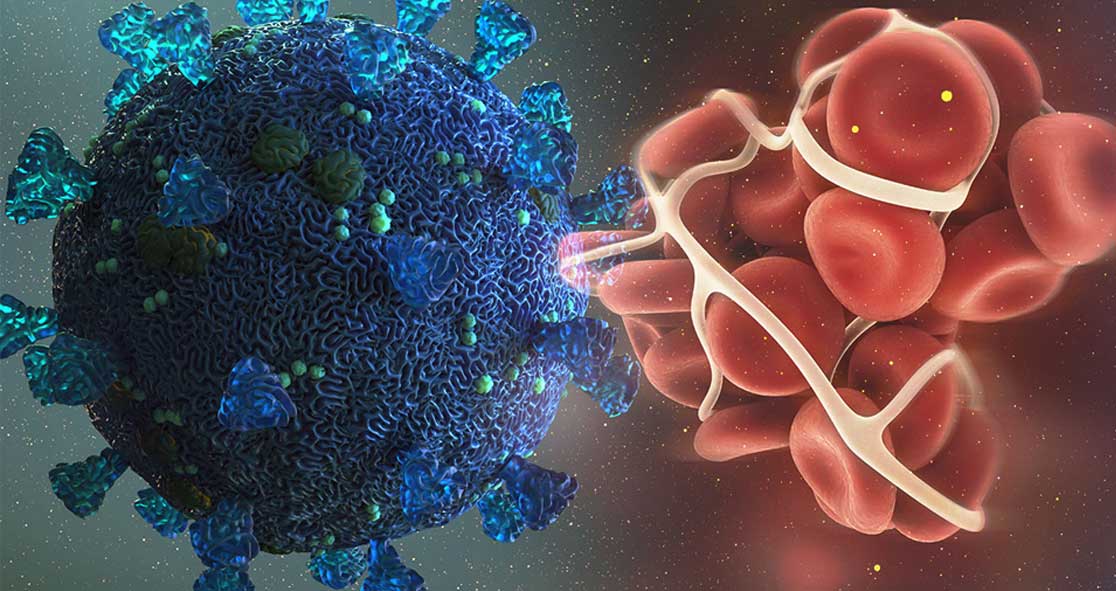A new observational study, published online last week in BMJ, has found that early prophylactic anticoagulation therapy in newly hospitalized COVID patients is linked to lower mortality.
In the study, patients who received anticoagulation therapy in the first 24 hours of hospitalization had a 27% lower risk for 30-day mortality than those who did not receive the therapy.
Lead author Dr. Christopher Rentsch told Medscape Cardiology, “We believe our work provides further evidence that initiating prophylactic doses of anticoagulation in earlier stages of severe COVID-19 provides greater benefit than initiating prophylactic or even full-dose anticoagulation when critically ill.”
The study looked at more than 4290 COVID patients (93% men) who were admitted to Department of Veterans Affairs hospitals between March 1 and July 31, 2020, with no history of anticoagulation. Of these, nearly 85% received prophylactic anticoagulation therapy within 24 hours of hospitalization.
Within 30 days of hospitalization, the team found that 622 patients died. They found that the incidence of mortality at 30 days was 14.3% among patients who received anticoagulation therapy, compared with 18.7% among those who did not receive the therapy.
Prophylactic anticoagulation therapy was also associated with a 31% reduced risk for mortality and 19% reduced risk for initiation of therapeutic anticoagulation, according to Medscape.
Dr. Valentin Fuster of Mouth Sinai Hospital told Medscape Cardiology, “The results from this study are strikingly similar to the results of our observational study.”
Earlier this year, the World Health Organization (WHO) recommended the use of low-dose anticoagulation, although based on “very low certainty evidence.” It also stated that higher doses of anticoagulation could lead to other problems.
In December 2020, the National Heart, Lung, and Blood Institute (NHLBI) announced that it was pausing three trials, which were investigating increased levels of anticoagulation in critically ill COVID patients in ICU for futility and safety concerns.
Dr. Fuster said, “The patients in these trials were very sick, and the message is that these patients should not be treated with anticoagulation, and I don’t disagree with that. In the patient who is in the hospital but not in the intensive care unit, the incidence of hemorrhage is relatively low.” “We show this in our published study,” he added, “but we cannot say the same for critically ill patients hospitalized in intensive care. Bleeding increases when the patient goes into the ICU, and this is the group that we feel less excited to treat.”























